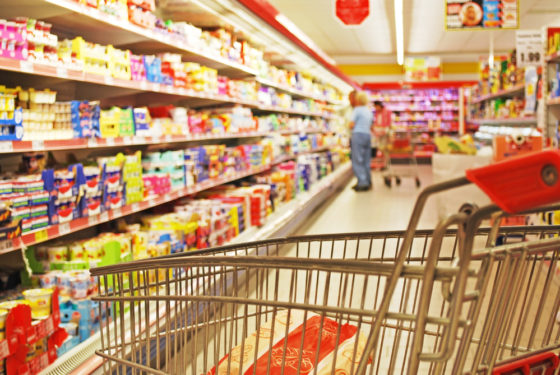Supermarkets still fail to sell healthy choices to customers: report


Supermarkets are not doing enough to promote healthy food choices by customers despite promises made in a health covenant and the national health accord, an investigation by Questionmark research bureau has shown.
The report, published on Tuesday, is a combined effort between the research bureau and the main Dutch health charities.
Unhealthy food, the report said, still makes up the bulk of the products on sale at the eight Dutch supermarket chains that were looked at. In addition, four out of five products featured in promotional material did not follow the guidelines of the government’s healthy eating advisory centre Voedingscentrum.
Most supermarkets also still have sweets at the till to promote last-minute impulse buying.
It is unclear, the report said, how supermarkets are holding up their end of the bargain when it comes to policies for combating weigh gain, which they agreed to in 2005 and 2018.
Marc Jansen, director of the supermarket and food services umbrella organisation CBL, said in a reaction that supermarkets had progressed in the last 15 years. For instance, they have lowered the amount of fat, sugar and salt in home brand products and are phasing out marketing aimed at children, he told the Volkskrant.
Jansen went on to discredit Questionmark which, he said, ‘has a clear mission and an advisory board consisting of scientific do-gooders’ and protested that supermarkets face limits when it comes to making health claims for products.
However, the paper said, the report gives credit where credit is due. The Coop supermarket group, for instance has adjusted its recipes to include the five main food groups, while Dirk no longer offers sweets at the till. Lidl was praised for not promoting soft drinks for children while Aldi is marketing carrots and apples as an alternative to sweets. EkoPlaza was the only supermarket where over 50% of the products could be labelled ‘healthy’.
Junior health minister Paul Blokhuis said the findings were worrying and that the progress of the measures in the health accord would be monitored independently. He also said he would tell the health institute RIVM to investigate if extra measures regarding the promotion of healthy food choices by supermarkets are necessary.
Last month Unicef published a report saying that two thirds of supermarket products aimed at children are bad for them.
Thank you for donating to DutchNews.nl.
We could not provide the Dutch News service, and keep it free of charge, without the generous support of our readers. Your donations allow us to report on issues you tell us matter, and provide you with a summary of the most important Dutch news each day.
Make a donation